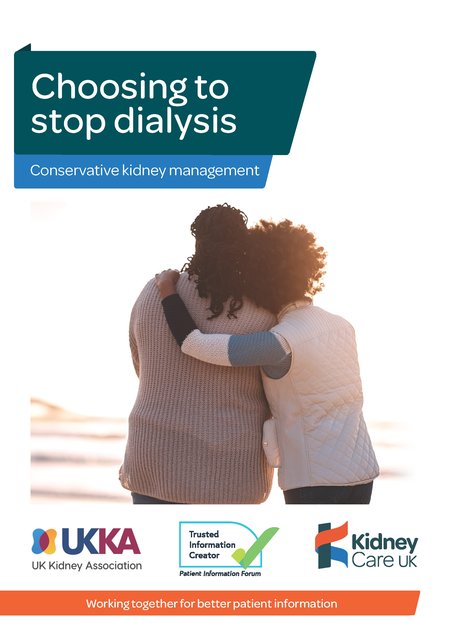
Choosing to stop dialysis
There may be a time while receiving long term dialysis treatment when patients think about stopping treatment. This leaflet will discuss what can happen if you stop dialysis.

Publication date: 12/2023
Review date: 12/2026
Kidney Care UK has achieved the PIF TICK, a quality mark operated by the Patient Information Forum. The PIF TICK certifies us as a reliable and trustworthy provider of health and social care information.
Click the category names below to view other related information booklets.
Categories
All of our booklets are free to download.
The information in these booklets is produced on behalf of and with the kidney community, in partnership with the UK Kidney Association (UKKA; formerly The Renal Association).
Order a printed information booklet
You can order free printed copies of our booklets on our online order form.
(Please note: not all of our patient information booklets are available as printed copies.)